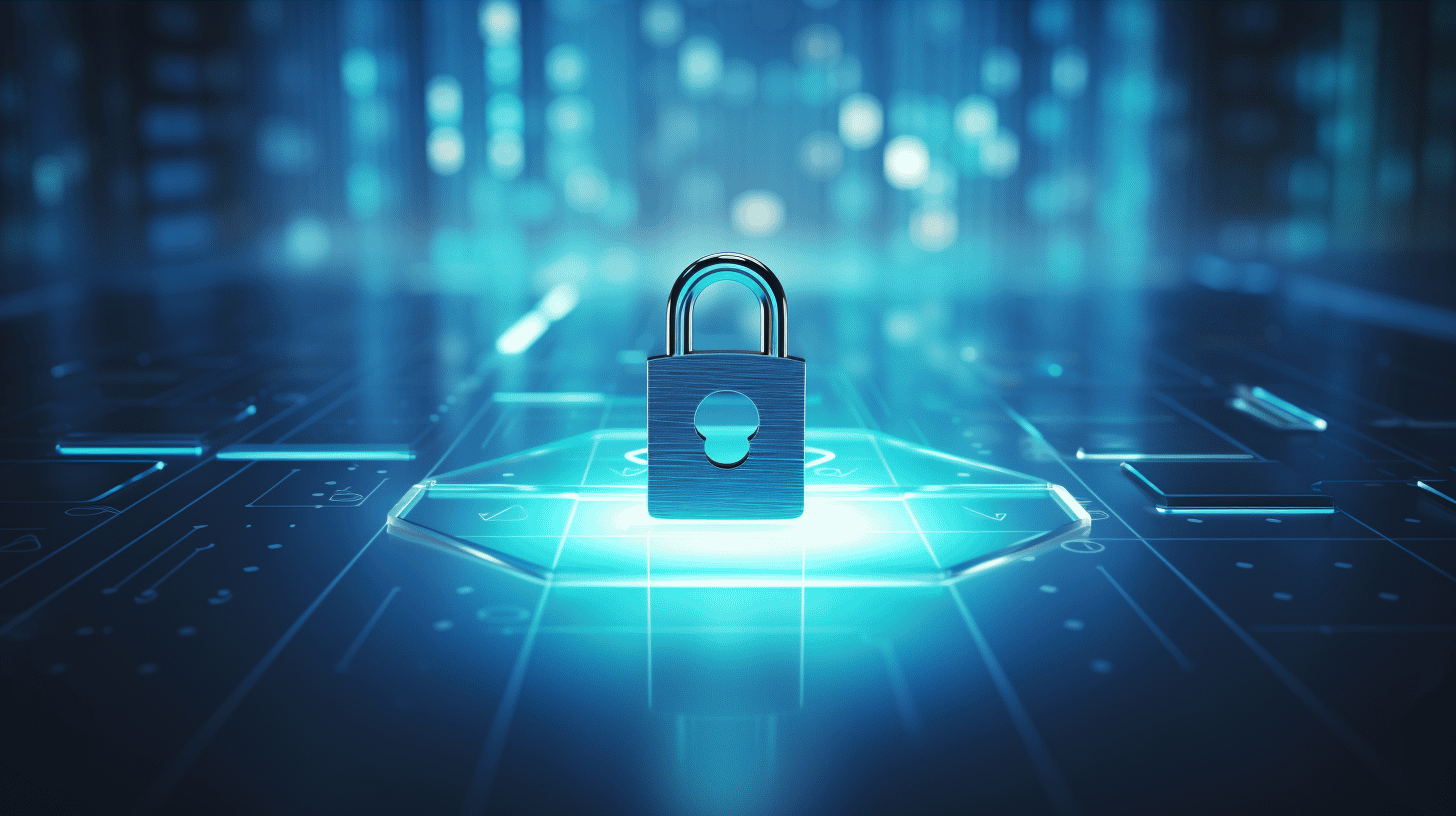在當今數位時代,擁有強大的網路影響力對於小型企業來說至關重要。設計良好且用戶友好的網站可以幫助吸引潛在客戶並產生銷售。最受歡迎的網站建立平台之一是 WordPress,因為它具有多功能性和易用性。然而,僅僅擁有一個網站是不夠的;您還需要確保它免受潛在的網路威脅。
🔒 網路安全是各種規模企業最關注的問題,小型企業尤其容易受到攻擊。駭客一直在尋找可利用的漏洞,網路攻擊可能造成毀滅性的後果。從財務損失到品牌聲譽受損,影響可能是巨大的。
在本文中,我們將探討網路安全對小型企業的重要性,並提供有用的提示來增強您的 WordPress 網站的安全性。透過遵循這些提示,您可以創建一個安全且用戶友好的線上形象,從而贏得客戶的信任並保護您寶貴的業務資料。那麼,就讓我們開始吧! 🚀
網路安全對小型企業的重要性
在當今數位時代,網路安全已成為企業營運不可或缺的一部分,無論其規模大小。雖然較大的公司可能擁有資源和專業知識來投資強大的網路安全措施,但小型企業往往會因為缺乏意識或預算限製而成為網路威脅的受害者。然而,忽視網路安全的後果可能會為小型企業帶來毀滅性的後果,導致重大的財務損失、聲譽受損,甚至失去客戶信任。
停機時間和對銷售的影響
小型企業應優先考慮網路安全的主要原因之一是潛在的停機時間及其對銷售的影響。網路攻擊可能擾亂公司的運營,導致其係統和網站無法存取。由於員工無法存取關鍵數據或執行必要的任務,這可能會導致寶貴的工作時間的損失。根據最近的統計數據, 51% 小型企業 經歷網站停機 8-24 小時這可能會對銷售和客戶信任產生嚴重影響。客戶越來越依賴線上互動,任何服務中斷都可能導致客戶不滿並造成業務損失。
對網路威脅的擔憂
小型企業並不能免於網路威脅,因此他們必須認識到數位環境中潛伏的潛在風險。根據一項研究, 60% 小型企業 將網路安全威脅視為首要關注的問題。這些威脅可能以網路釣魚攻擊、惡意軟體感染甚至勒索軟體的形式出現,其中敏感資料被加密並被扣為贖金。隨著網路犯罪分子變得越來越老練,小型企業需要保持警惕並主動保護其數位資產。
針對小型企業的網路攻擊日益增多
近年來,針對小型企業的網路攻擊的頻率和嚴重程度令人擔憂。據報道, 73% 美國小企業主 去年報告了一次網路攻擊,顯示沒有一家企業能夠免受這些惡意活動的侵害。值得注意的是 所有資料外洩的 43% 涉及中小型企業,主要是因為它們通常缺乏大型組織能夠負擔得起的強大安全基礎設施。駭客將小型企業視為容易攻擊的目標,因為他們知道小型企業通常防禦能力較弱,資源有限,無法有效應對網路安全威脅。
那麼,小型企業可以採取什麼措施來保護自己免受這些網路風險呢?一個有效的解決方案是建立一個安全且使用者友好的 WordPress 網站。這 “安全且用戶友好的 WordPress” 該指南為小型企業主提供了寶貴的建議和最佳實踐,以加強他們的網路安全態勢。透過實施這些措施,小型企業可以增強防禦能力,最大限度地降低成為網路攻擊受害者的可能性。
總而言之,網路安全並不是大公司獨有的奢侈品。小型企業必須認識到保護其數位資產和客戶資料免受潛在網路威脅的重要性。透過投資強大的網路安全措施並採用最佳實踐,小型企業可以在日益數位化的世界中保護自己、客戶和聲譽。
安全網站連結的重要性
在當今的數位環境中,網站安全至關重要。使用者希望在造訪網站時感到安全和受到保護,尤其是在分享個人資訊或進行線上交易時。網站安全的一個關鍵方面是擁有安全的連接。
安全的網站連線(通常由瀏覽器網址列中的掛鎖符號表示)可確保使用者裝置與網站之間交換的資訊已加密並免受潛在威脅。這種加密可防止惡意行為者的未經授權的存取、資料篡改和竊聽。
那麼,為什麼安全的網站連結如此重要?讓我們仔細看看它的意義:
1. 用戶信任與信心
安全的網站連結可以在使用者之間建立信任和信心。當使用者看到網站具有安全連線時,他們會放心,他們的個人資訊(例如密碼、信用卡詳細資料和聯絡資訊)不會被窺探。這種信任鼓勵用戶毫不猶豫地參與網站、進行購買和分享敏感資訊。
2. 防止資料外洩
近年來,資料外洩現像日益普遍,對用戶和企業造成的影響都很嚴重。透過建立安全的網站連接,企業可以保護用戶資料並防止潛在的資料外洩。這包括防止未經授權存取敏感資訊、降低身分盜用的風險以及避免潛在的法律和財務後果。
3. 提升 SEO 效能
擁有安全的網站連線也可以對您網站的搜尋引擎優化(SEO)效能產生正面影響。像谷歌這樣的搜尋引擎優先考慮具有安全連接的網站並將其視為排名因素。這意味著安全的網站連接可以潛在地提高您的網站在搜尋引擎結果中的可見性,從而增加自然流量並提高您企業的線上可見性。
4. 消費者期望
隨著網路安全問題日益突出,用戶對在網路上分享資訊的地方變得更加謹慎。他們希望企業優先考慮其安全和隱私。透過實施安全的網站連接,企業可以滿足這些期望並表明其保護用戶資料的承諾。
5.減少購物車放棄率
您是否知道,如果用戶的資料透過不安全的連線發送,84% 的用戶會放棄購買?由於網站連接不安全而缺乏信任可能會導致高購物車放棄率,從而影響您的線上銷售和收入。另一方面,安全的網站連結可以增強用戶信心,減少購物車放棄率,提高轉換率並增加您的利潤。
總之,安全的網站連結不僅僅是一個很好的功能;它是成功網站的重要組成部分。它建立信任、保護用戶數據、提高 SEO 性能、滿足消費者期望並降低購物車放棄率。透過優先考慮網站安全,企業可以為用戶創建安全、可信賴的線上環境,最終推動成長和成功。
增強 WordPress 網站安全性
在當今的數位環境中,網站安全至關重要。隨著網路威脅的不斷增加,採取措施保護您的 WordPress 網站免受潛在攻擊至關重要。幸運的是,您可以採取幾個步驟來增強 WordPress 網站的安全性並保護其免受未經授權的存取和惡意活動。
定期 WordPress 更新
提高網站安全性最簡單、最有效的方法之一是保持 WordPress 安裝、主題和外掛程式為最新版本。這是因為開發人員經常發布解決安全漏洞的更新。透過定期更新您的 WordPress 網站,您可以確保安裝了最新的安全補丁,從而降低潛在攻擊的風險。
更新您的 WordPress 安裝是一個簡單的過程,可以從 WordPress 儀表板完成。此外,您可以啟用外掛程式和主題的自動更新,以確保您不會錯過任何重要的安全修復。
使用強密碼和雙重認證
密碼通常是防止未經授權存取您的網站的第一道防線。使用包含大寫和小寫字母、數字和特殊字元組合的強密碼可以顯著提高安全性。避免使用常見或容易猜測的密碼,例如「password123」或您的姓名後面跟著您的出生年份。
除了強密碼之外,啟用雙重認證 (2FA) 可以為您的 WordPress 登入流程增加額外的安全層。使用 2FA,您將需要提供第二種形式的身份驗證,例如發送到您的行動裝置的唯一代碼,這使得攻擊者更難以訪問您的網站。
限制登入嘗試
採取措施限制登入嘗試次數可以保護您的 WordPress 網站免受暴力攻擊。暴力攻擊涉及自動機器人,它們反覆嘗試不同的使用者名稱和密碼組合,直到找到正確的組合。
透過限制登入嘗試次數,您可以阻止這些機器人不斷猜測密碼並可能造訪您的網站。實現這一點的最簡單方法是使用提供專門用於限制登入嘗試功能的安全插件。
安全插件和定期審計
在您的 WordPress 網站上安裝安全性外掛可以提供額外的保護層來防禦各種安全威脅。安全插件提供惡意軟體掃描、防火牆保護和登入 IP 限制等功能,可協助保護您的網站。
除了使用安全插件外,定期進行安全審核也至關重要。這些審核包括審查您網站的安全設定、配置和存取控制,以確保一切正常。定期審核有助於識別並解決任何潛在漏洞,防止其被攻擊者利用。
雖然這些技巧可以顯著增強您的 WordPress 網站的安全性,但值得注意的是,WordPress 安全性是一個持續的過程。保持警惕、隨時了解新出現的威脅並遵循最佳實踐來保護您的網站免受網路攻擊至關重要。
請記住,增強您的 WordPress 網站安全性對於保護您的資料和維護訪客的信任至關重要。透過實施這些措施,您可以放心,因為您知道您已經採取了必要的步驟來確保您的網站安全無虞。
查看 提高 WordPress 安全性的技巧 了解有關保護您的 WordPress 網站安全的更多詳細資訊和更多見解。
結論
總之,對於小型企業主來說,創建一個安全且用戶友好的 WordPress 網站至關重要。不斷增加的網路威脅和可能影響銷售的潛在停機時間使得優先考慮網路安全變得勢在必行。透過實施以下提示,企業主可以增強其 WordPress 網站的安全性:
- 定期更新 WordPress 及其外掛程式以確保安裝最新的安全性修補程式。
- 使用強密碼並啟用雙重認證來增加額外的保護層。
- 限制登入嘗試以防止暴力攻擊。
- 使用安全插件並進行定期審核以識別和解決漏洞。
透過採取這些安全措施,小型企業主可以保護他們的網站,保護客戶數據,並維護線上訪客的信任。與 Managed-WP™ 等可靠的託管 WordPress 託管服務提供者合作可以進一步增強網站安全性,因為他們提供專業的 24/7/365 WordPress 支援、備份管理和主動監控。透過 Managed-WP™,小型企業主可以專注於其核心業務,同時確保安全、無縫的線上狀態。
常見問題解答
- 為什麼網站安全對小企業主很重要?
網站安全對於小型企業主來說至關重要,它可以保護敏感的客戶資料、防止駭客攻擊、維護企業聲譽、避免網路攻擊造成的財務損失。
- WordPress 網站有哪些必要的安全措施?
WordPress 網站的一些基本安全措施包括保持 WordPress 和外掛程式/主題為最新版本、使用強大而獨特的密碼、啟用雙重認證、安裝安全性外掛程式以及定期備份網站資料。
- 小型企業主如何提高其 WordPress 網站的用戶友好度?
為了提高用戶友好度,小型企業主應該專注於創建清晰直觀的導航選單,優化網站速度,使用響應式設計,確保行動裝置相容性,並提供資訊豐富且引人入勝的內容。
- 是否有專門用於網站安全的 WordPress 外掛?
是的,有多個可用於網站安全的 WordPress 插件,例如 Wordfence、Sucuri Security、iThemes Security 和 All In One WP Security & Firewall。這些插件提供惡意軟體掃描、登入保護和防火牆管理等功能。
- 小企業主是否應該投資定期網站維護?
是的,定期的網站維護對於小型企業主來說至關重要,以確保他們的 WordPress 網站的安全性和效能。它包括更新插件和主題、監控網站分析、刪除未使用的插件以及優化網站速度等任務。



















